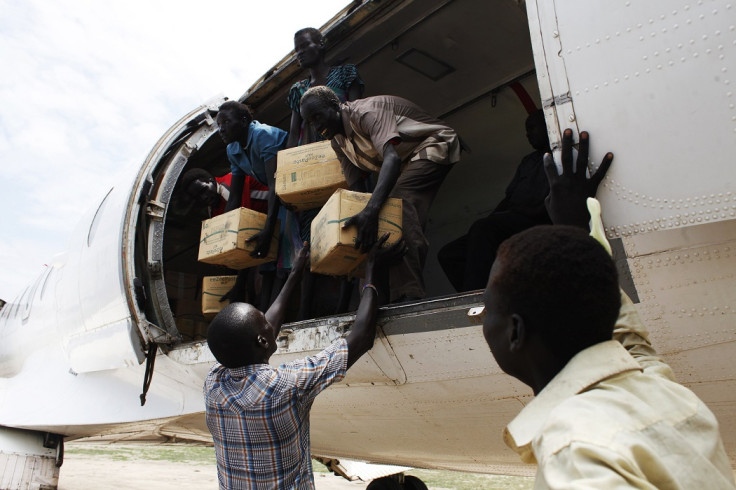UN Warns of 'World's Worst' Food Crisis in South Sudan

International aid agencies are warning of a food crisis country that is threatening one in three people in the country.
The United Nations Security Council said South Sudan's food crisis is the worst in the world, and called for countries that have pledged aid money to donate urgently to avoid a humanitarian emergency.
Donor nations have pledged £364m ($618m) in aid but have yet to make good on their promise.
A statement said: "The members of the Security Council expressed grave concern about the catastrophic food insecurity situation in South Sudan that is now the worst in the world. They further expressed deep alarm that the crisis in South Sudan may soon reach the threshold of famine as a result of continued conflict, civilian targeting and displacement."
The world should not wait for a famine while children here are dying
The UN children's fund, Unicef, said four million people – a third of the population of South Sudan – could be affected. UNICEF warned that 50,000 children may die of hunger unless international help increased.
In a joint statement with the World Food Programme, Anthony Lake, executive director of UNICEF, said: "The world should not wait for a famine to be announced while children here are dying each and every day. We all have to do more, and quickly, to keep more children alive."
The charity Oxfam said over seven million people in South Sudan are at risk of food insecurity and 4.9 million of them are in urgent need of humanitarian aid. Oxfam launched an appeal to raise donations for emergency food, aid and sanitation supplies.
Warning bells are ringing in East Africa - but is anyone listening? http://t.co/lyGfgAwIGW #SouthSudan #Somalia #hunger
— Oxfam International (@Oxfam) July 27, 20144 million people urgently need assistance in #SouthSudan. Pls support our response http://t.co/AESkZ2yYTK pic.twitter.com/1DKQy7sYYm
— Oxfam International (@Oxfam) July 11, 2014Months of fighting have prevented farmers from planting or harvesting crops, causing food shortages nationwide. In May, the Government signed a deal with rebels, known as the 'month of tranquillity' to allow civilians caught up in a four-month conflict to move to places of safety and plant crops.
Oxfam stated: "With the end of the 'month of tranquillity', which allowed some people to get back to their fields to plant and harvest the coming crops, there is a real danger that a resumption or intensification of hostilities could make all efforts so far count for nothing."
The onset of the rainy season has added to the problem by preventing displaced farmers from planting crops.
More than a million people have fled their homes since fighting erupted between different factions of South Sudan's ruling party last December. The conflict between President Salva Kiir and his deputy Riek Machar began as a political dispute but has since escalated into ethnic violence that has left thousands of people dead and displaced hundreds of thousands more.
South Sudan gained independence from Sudan in 2011. It was named at the top of a list of fragile states in research by The Fund for Peace, a leading US-based research institute.
© Copyright IBTimes 2025. All rights reserved.





















